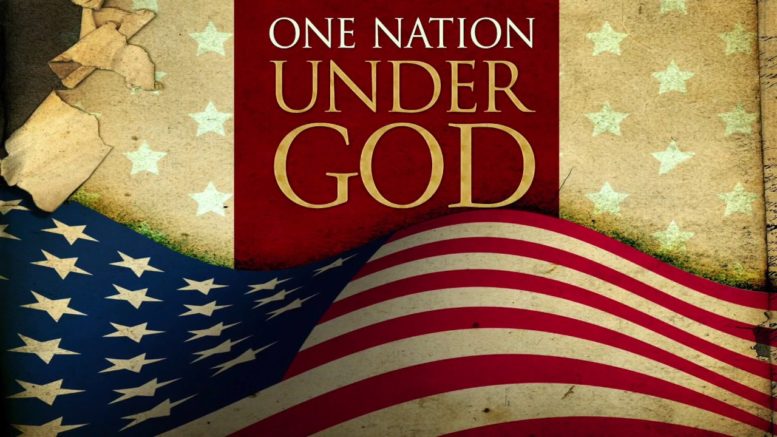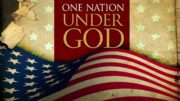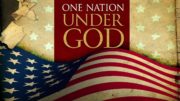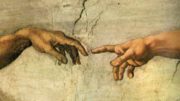Reprinted from LivingRightly.net
This article builds on the previous justice and life articles. Today’s examines what we do with our life—the actions we take and how those relate to our purpose. As mentioned before actions have their root in the ideas we hold.
Man and Creation
Man is a part of God’s creation. Therefore, man shares many things with it. He is born, dies, sleeps, eats, procreates, seeks shelter from the elements, etc. But man is also different. Man was given God’s image at creation. An inward image. Our ability to reason.
All creation involves separation and not union; just as an artist creates a work of art, a builder a home, or a writer a story. God is separate from nature. Through God’s second gift of His image, man is created differently from the rest of nature. This image sets him apart. While God’s image within man is no doubt a very dim one, it is also true there is nothing else closer in the rest of creation. Man is unique. We are called to not just do as the rest of creation does, but instead to know and do in a particular way based upon that knowledge.
Actions and Purpose
The previous articles demonstrate why the means used to achieve an end matter. We are not to do simply by our own will, nor be content to just know without doing. Those are not the choices we are called to make. We need only to review Jesus’ Sermon on the Mount.[1] He called us to both know and do in a specific way. A way based on service to others.
We are not saved by our works alone—that is, the ends, our choices. Rather our works are an outward sign of what we believe or follow—an idea shaping our choices and how we go about achieving them. It is that belief accompanied by actions serving others out of love, that transforms us into who we are to be and thereby fulfills our purpose. Simply to become good. Modern liberalism fails because it looks only to the ends alone.
Serving others through charitable acts also supports society’s common good. But to be effective we must learn to discern good from evil. We must develop the ability to judge ideas, choices, and actions. Not people. To discern good from evil requires developing virtue—righteousness. As we are not born possessing virtue, it must be learned. But simply learning is insufficient, we must internalize what we learn—until it becomes the virtue of wisdom. Wisdom is knowledge so deeply rooted that it is unshakable in the face of chaos and evil.
Liberalism and Judgement
Liberalism today is all about judging, judging people that is. Ends based justice, which by its very nature is unjust. It is the very opposite of what we are to do. When someone disagrees with liberalism’s position we hear cries such as “They’re crazy”, “They have a history of mental instability”, “They’re corrupt,” or “They’re evil.” Such personal attacks reflect they’ve chosen to put aside their own humanity, separating their reason from actions.
But it can be no other way. Liberalism focuses on specific ends alone using positive rights—that is, human rights. There can be no positive test for justice, nor can there even be a rule based process as exists with traditional justice. Positive rights require only obedience, and often rely on coercion to achieve a specific end. The rules supporting traditional justice are based upon biblical principles and developed by society itself, they provide knowledge of the means to be used to obtain an end. Absent those rules, man is left with the end alone, what he wants, and his appetite alone drives his behavior. At that point man sets aside morality.
What It Means to Know
Acquiring knowledge requires three things. First, understanding its source. Second, accepting what is taught through belief, faith accompanied by respect and obedience to one’s teacher. Third, testing what is taught to discern the true from the false—that is, good from evil.
Knowledge is necessary to fulfill our purpose of becoming good. True knowledge has its basis in God, the source of all good. We are not born with either knowledge or virtue. We must therefore have a right to learn (to know) and to choose (to do).
From God we receive certain rights, and the freedom to make our own choices in connection with those rights. Not unlimited freedom,[2] as our God given rights are almost exclusively negative. Negative rights recognize the common nature we all share as we have broader discretion in the choices we make over positive rights.
Acquiring virtue, including justice, is the means by which we fulfill our purpose. Developing virtue requires us to change. The transformation we are to undergo requires putting others ahead of ourselves. It incorporates respect, service, and obedience, all performed out of love. Some specifics include;
- Putting the eternal (our nature) over the here and now (the material),
- Discerning good from evil,
- Becoming righteous, choosing virtue over vice,
- Not submitting to man’s teachings emphasizing the material, vice, and judging people.
Once we have knowledge, we have a duty to fulfill our purpose. This comes back again to grace, returning love to God for the love He’s shown us. It is to man’s benefit to return God’s love, because rejecting His knowledge and values leads to man’s personal destruction. It is man rejecting good.
Why Do Good?
As mentioned earlier, just knowing is not enough. We are each called to do, make choices and take actions in a particular way. So why does doing good matter? First, our freedom (free will) is another gift from God. He could have created us as slaves, but He did not. Instead he created us free to make our own choices, an ability key to our purpose as just noted.
Second, the choices we make transform us, for either good or bad. It is up to us. Out of love God desires us to choose good, to serve others over ourselves. This is easier to do when we surround ourselves with good people, others who also choose to do good. Third, our choices matter because we are responsible for them. No one else. Our bad choices harm us, and we can only choose good or evil.
There is a fundamental difference between pagan and Christian virtue. The pagan view of virtue is that good and evil are a blending of white and black into gray. Something on balance just needs to be a little more white to be ‘better,’ or a little less black to be not so bad. These are the false choices of the ‘greater good’ and ‘lesser evil’ presented by modern liberalism, choices representing pagan ideas.
Christian principles stand this notion on its head. Those principles say there is only black and only white, only good and only evil. Both fully present; both fully active at the same time. It is our choices that make the difference, and we can only choose good or evil.
Knowing and Doing Good’s End
Something amazing happens when we learn and do good. We fulfill our purpose, and by fulfilling our purpose we find peace. True peace, peace based upon the eternal. Call it happiness or joy. It is another of God’s gifts to us. We have a right to this happiness as it is His gift. To receive it requires our acceptance of who we are, who God is, and a commitment to allowing ourselves to be transformed by our education, internalizing the models of virtue we learn, and practicing what we’ve learned through our choices.
We can go back to the Sermon on the Mount again. Jesus said the one who listens to what He says and acts accordingly, has built his house upon rock. Those who do not either listen or do have built their house upon sand, and it will not last.
Charity’s Role
Accepting this gift comes with a corresponding duty, to be obedient by performing acts of service for others—that is, charity. Charity is not only a virtue, but the end state of all other virtues. All charity begins as an act of faith, is voluntary, requires virtue, and ends in an act performed out of love for another human being—what the Greeks called agape, which is translated as both charity and love.
Charity is about both the material and spiritual. Those are the general ends. The means lead to assisting another to become better able to stand on their own, to becoming independent. It is about teaching someone to fish, and not simply giving them fish. Charity is to come from your abundance, both spiritual and material, to anyone in need who comes across your path. It is also a matter of learning to share another’s burden, and requires discernment to serve another in a way that actually helps them.
We are not here to pursue material goods, although that in and of itself is not bad. Instead we are to be content with what we have, the things that truly matter. Enjoying the fruits of one’s labor. Enjoying your spouse and children, those you love, and the time you share with them. These are enough. Modern liberalism offers only government assistance programs that attempt to replace charity, but cannot. Those programs create dependency, replace the spiritual with the material, and limit freedom as they come with strings attached. There is no love, so such programs ultimately limit man’s ability to fulfill his purpose.
We Only Need to Accept Our Rights
Accepting God’s freely given rights, comes with accepting a duty to commit to personal transformation. Acceptance is our choice. When we receive a gift out of love, isn’t it righteous to return that love? The last section focused on the governance aspect of action, but it doesn’t end there. What we’ve discussed also applies to the spiritual—theology. Today’s corruption comes from liberation theology.
Liberation Theology
Like the rest of modern liberalism, liberation theology is also about specific ends. It is concerned with ends based ‘justices’ of all kinds; economic, environmental, racial, social, etc. The full weight and power of both government and religious organizations are to be used in bringing about its ends. While well intentioned, and I’m going to use a word we don’t hear often anymore, it is heresy.
All heresy involves man placing limitations on God, providing a way for man to elevate himself. Liberation theology picks and chooses the scripture supporting its position, but ignores all others that do not. This is simply another form of Marcion’s heresy. Marcion felt the Bible was “too Jewish,” and so disregarded all books of the Bible except some sections of Luke. Donatism, another heresy, believed God’s grace was insufficient to forgive those who assisted the Romans in persecuting the church when they asked to return.
It’s really no different with liberation theology. Since God is not bringing about the outcome oriented ‘equal sharing’ of material goods that liberalism expects, it is up to man to do so. A belief that by bringing about the ends, the means will follow. However, the morality to support the ends will no longer be present as immoral means are used to attain them. And just like many early heresies, it rose from within the church itself through well intentioned people seeking to save Christianity from itself.
Man’s Making His Own Values Revisited
Liberation theology is simply another way of man creating and implementing his own values. The previous article expressed two implications from man’s attempts to do so. I’ll close with two more.
First, when man creates his own values, man’s equality of nature is no longer recognized. It must be so. You see, if man creates his own values, then someone must create those values, and everyone else must live by them. There is inherently a human elitism that is not supposed to exist. Instead there are groups. This is nothing more than the pagan principle that some are more equal than others, no matter how much liberalism tries to dress it up as ‘progressivism’ or ‘socialism.’ It is simply tribal paganism. Division is the fruit of man turned away from God.
Second, when man creates his own values they lose their content, a form of nominalism. Man’s values become simply labels. God’s values have content because their meaning have their basis in Him—an objective value. As noted several times already, man’s values are subjective. As they have no content they become driven not by principles, but man’s appetite, his emotions.
Conclusion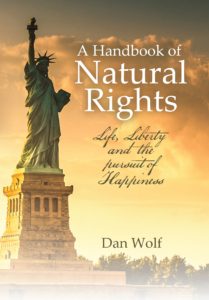
Principles matter. The choice is simple. Do we wish to keep our freedom and choose our own destiny, or have someone attempt to dictate it to us? Do we wish to fulfill our purpose or not? We are called to each vote our principles, just as the early Israelites did in electing their judges. All candidates should clearly state the principles they hold, and provide evidence to support their statements so an informed decision can be made. Settling for less is wrong.
The final article in this series looks at man’s dominion, and additional implications from liberalism for that area. Further information about these topics can be found in my new book A Handbook of Natural Rights.
[1] See Matthew Chapters 5, 6, and 7.
[2] Wolf, Dan, Liberalism’ Impact on Justice, http://www.livingrightly.net/Blog/tabid/87/ID/75/Liberalisms-Impact-on-Justice.aspx.

